Today, we got some very good news in regards to the upcoming open-world Harry Potter game! Yesterday, a Twitter user, David M. Kelly, asked the official Hogwarts Legacy account if the game will be supported on the Steam Deck. WB Games Support actually responded to this by affirming that the game will be verified on Steam for the Deck at release:
This is absolutely awesome and we are so excited to hear about the support coming to the Steam Deck, but this isn't always indicative of how well a game will actually run on the Deck. For example, Ninja Gaiden Sigma 2 is a verified title, but unfortunately, it suffers from graphical artifacting when utilizing half of the moves in your arsenal. So let's take a little look at what performance could possibly be like for Hogwarts Legacy:
Hogwarts Legacy - Possible Steam Deck Performance
So to look at how performance could be for Hogwarts Legacy, there are a couple factors we want to look at: Games of similar specs and genre, developer/publisher competence, and confirmed graphical options. Using these, we can try to infer how performance might look for the game.
This performance theorizing is purely an opinion and not indicative of the final release. We will not officially know performance until the game is released and in our hands, but until than, here is what we can gather from what we have in front of us:
The first thing I looked for is the developer's past games so I could see how the team can optimize their games. Unfortunately, the last game I could find developers by them was Disney Infinity 3.0, which was made in tandem with Heavy Iron Studios for Disney. While it did have some issues initially on Deck, setting a manual GPU Clock Speed calmed it all down and ran at a buttery smooth 60 FPS with around a 14W drain.
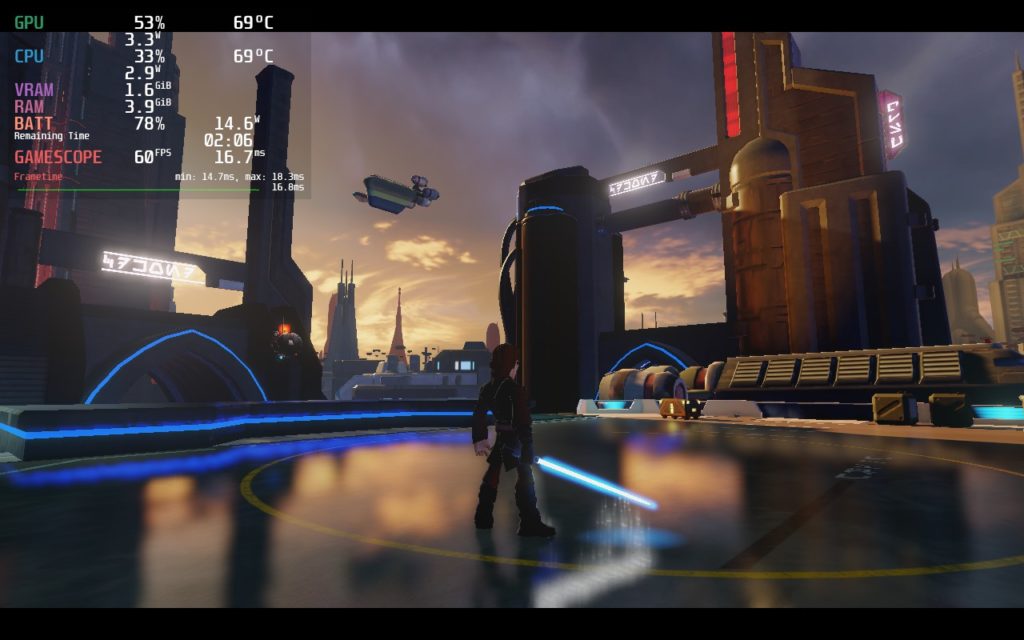
The second part was finding a game similar enough to estimate what performance could be like. The game I found was Biomutant. Per the Steam store pages minimum specs, both Biomutant and Hogwarts Legacy do have similar GPU requirements, but due to Biomutant being from 2021, it only asks for a CPU that is 2 generations behind, but running at a faster GHz speed, and 8gb RAM instead of 12gb.
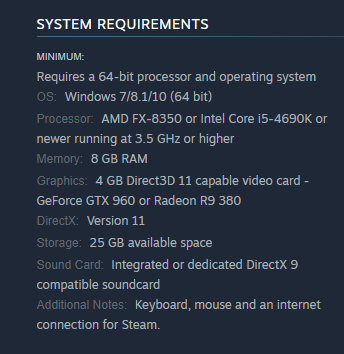
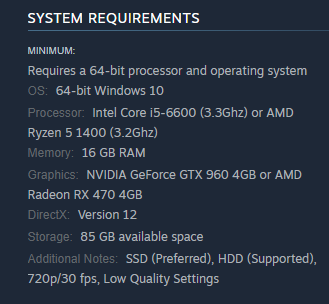
I decided to test Biomutant at the lowest possible settings and shoot for 60 FPS. There are lots of contained areas where it can hit 60, but unfortunately, as these areas go open or get more complex, that framerate drops. This tends to drop around 48-50 (with a TDP limit of 9), which isn't terrible and means 40 FPS is good, but this is on the lowest graphical setting. 60 FPS is achievable with a drain of 23W, but for the lowest settings, this is not good at all.
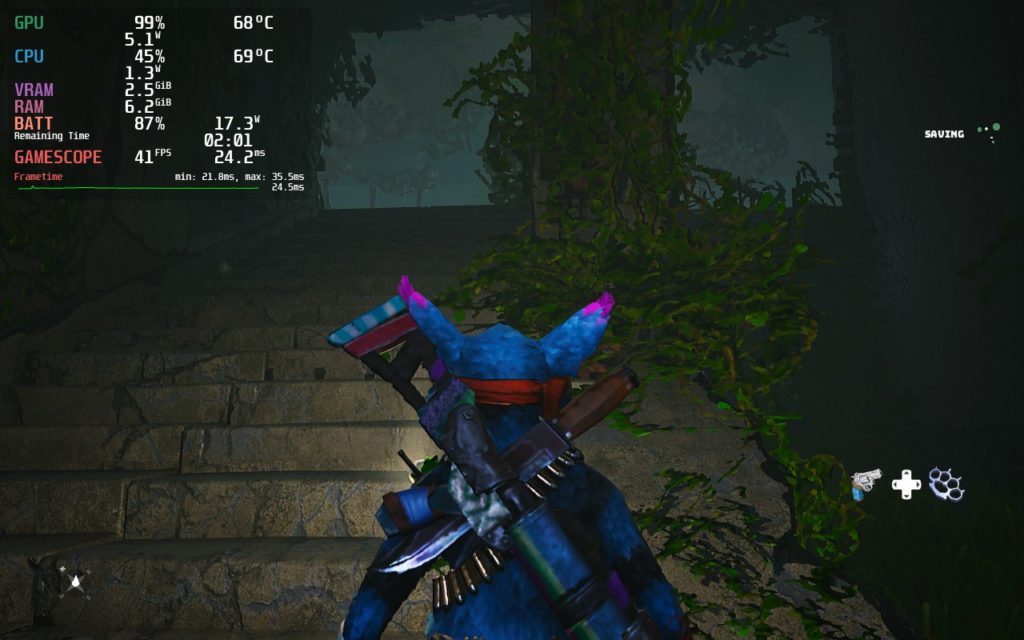
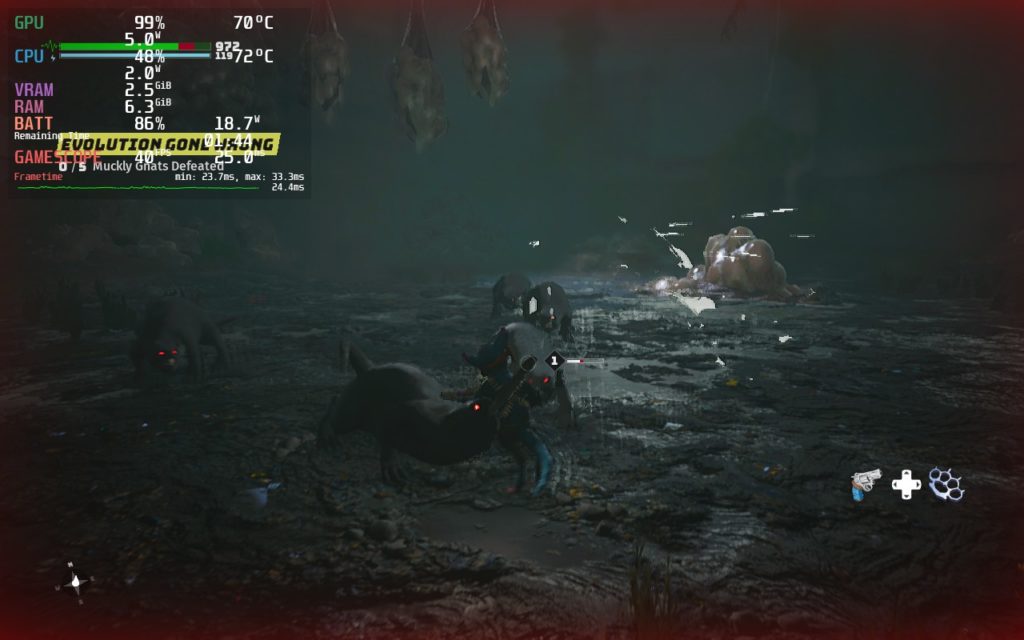
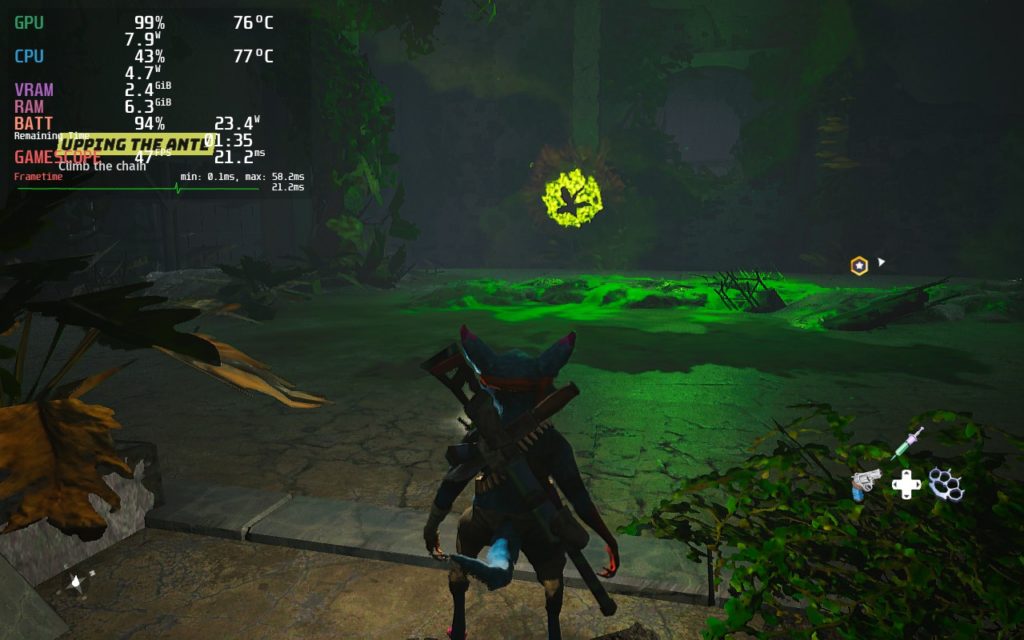
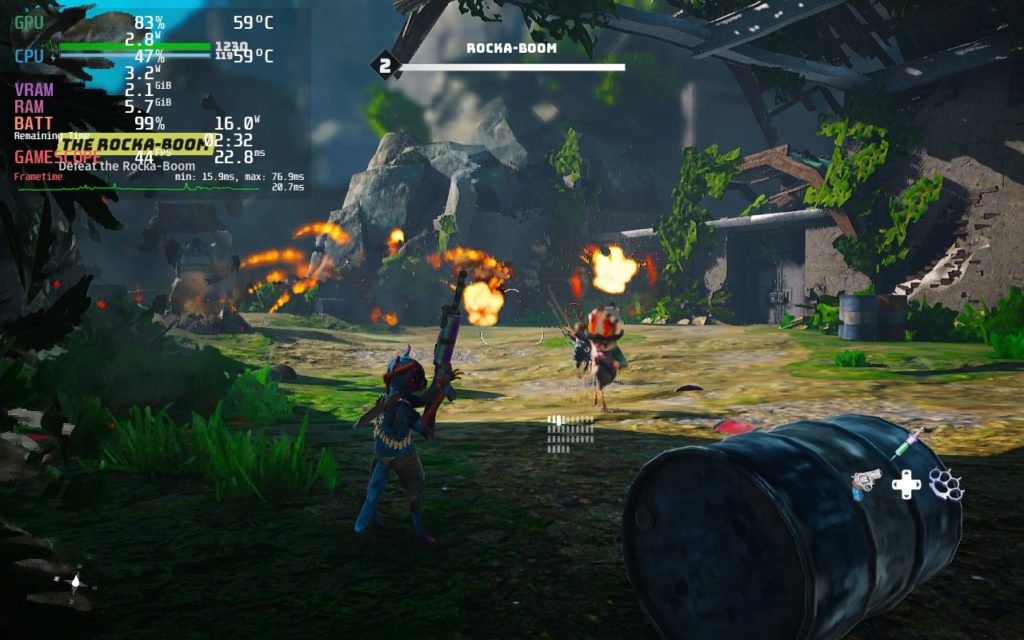
And finally, we take a look at Hogwarts Legacy's graphical options. While it should have the common options we do cover, it is also confirmed that Hogwarts Legacy will have FSR 2 support. While I haven't seen many articles confirming it, I did notice in the blog post for the FSR 2.2 update that Hogwarts Legacy is listed as including support. It doesn't note which version of FSR 2 it will have, but as long as it is 2.1, it will be much more helpful.
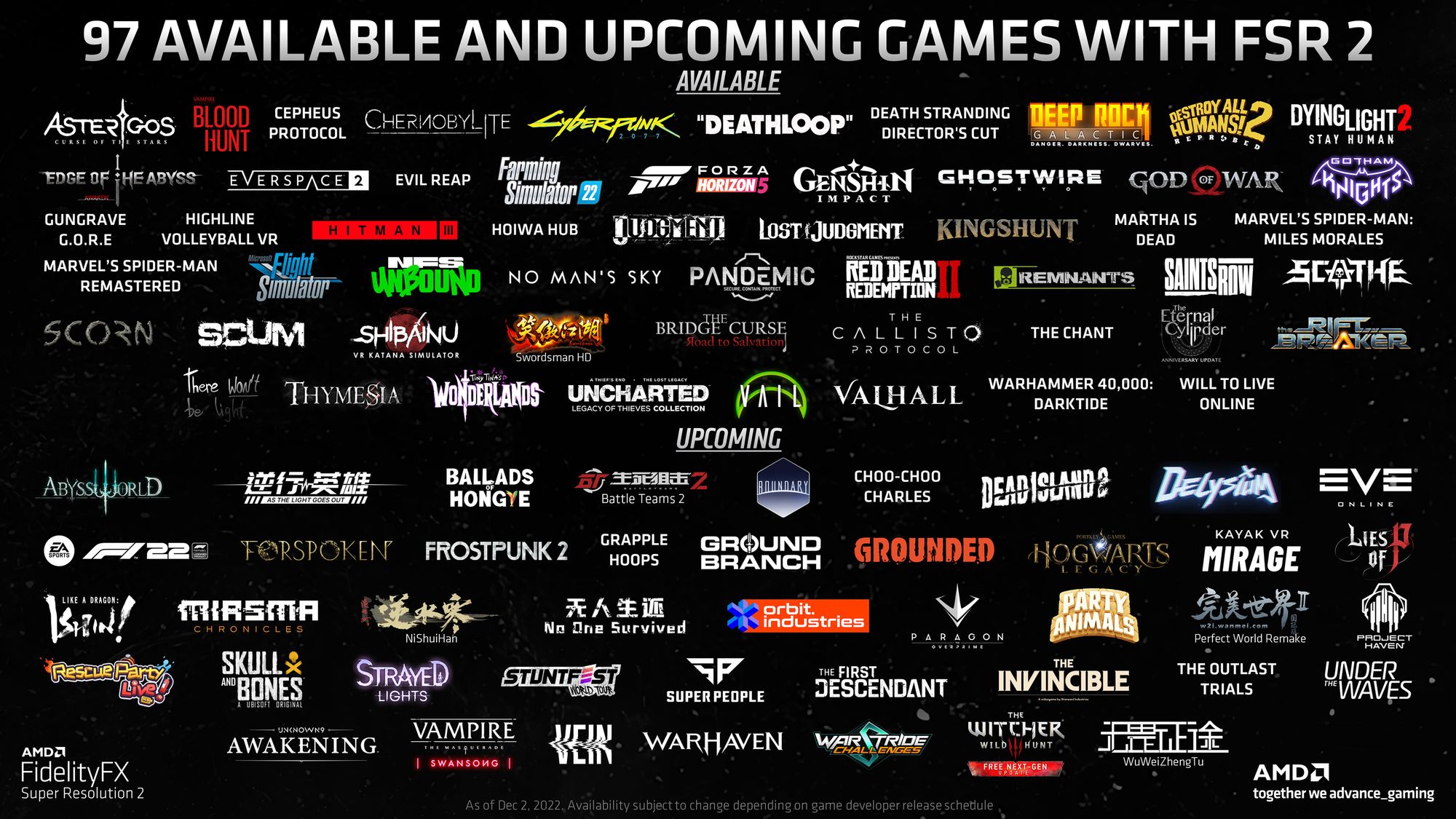
So putting all of this together is a bit hard due to a lack of history of the developer. But, with a similar game using the same engine (UE4) and knowing Hogwarts Legacy will have FSR support, I am optimistic about how it will play. I believe 30 FPS at medium settings with FSR on will be do-able, probably with FSR 2.0 in balance mode. I also am inclined to believe 40 FPS is possible, but will require some heavy compromises like lower graphics, resolution, and a mix of SteamOS FSR 1.0 and the in-game FSR 2.0.
I believe it will run a bit harder due to it being a more detailed open-world game and using DirectX 12, which runs a bit worse in some games over DirectX 11. Since this also uses UE4, we can expect some initial stuttering from loading in assets and shader compilation, but a lot of that should be alleviated by using Proton GE and the ASYNC launch option. Since the game is taking place in a university primarily, if optimized well, we could see better performance as condensed/smaller areas might be more prevalent here.
Overall, I do feel the game will run on the Deck and with the right tweaks, can run decently well. Again, this is all speculation and not confirmed performance. Hopefully, Avalanche Studios and WB Games can work together to bring a better optimized experience that will blow our speculation out of the water!
If you enjoyed this article, be sure to check out the rest of the content on SteamDeckHQ! We have a wide variety game reviews and news that are sure to help your gaming experience. Whether you're looking for news, tips and tutorials, game settings and reviews, or just want to stay up-to-date on the latest trends, we've got your back









This article is well researched and extremely insightful. I’m extremely impressed. There’s nothing else like it on the internet. It definitely hypes me up for playing this game on deck! WB, take notice.
I think it is in the best interest of valve to continue this trend of having games verified as compatible at launch. This makes it easier for people to consider the titles that they want to pick up. I think more game producers should spend time not only running and testing games on major consoles but the steam deck as well. I will love nothing more than to anticipate a release and already know ahead of time that the game is verified compatible.
I do like the Verified system, I just don't agree with how it is classified. I don't believe a game that needs to change graphical settings should be considered "Great on Deck" and "Verified" as under the wording they use now, it sounds like it should work great out of the box. There are a ton of games that have issues or need setting changes to run well, as well as "Unsupported" games that have no issues at all. I would just like more clarification in the system, not gutting it altogether.